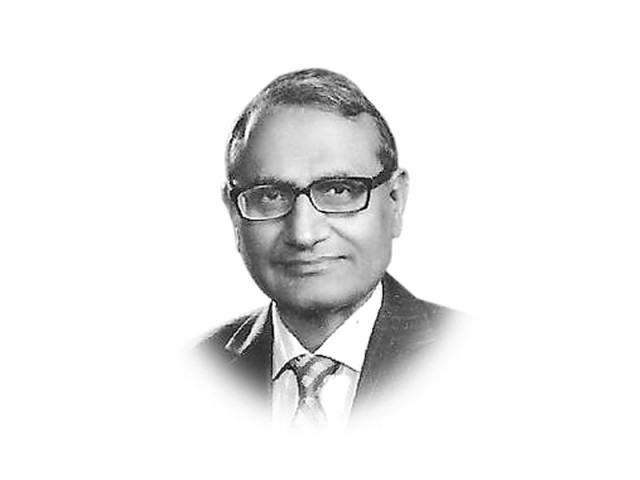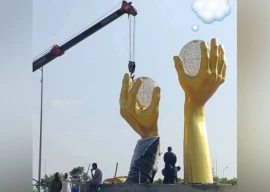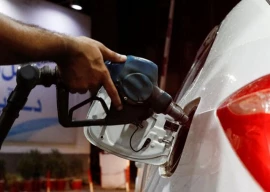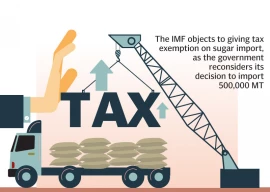
In Thar, lack of transport, thin spread of population, corruption and plain incompetence have been cited as reasons for the failure to make available food accessible. Essentially, it is the failure of the PPP government in Sindh to institute entitlement to food in a district declared in ranking after ranking the worst performer in terms of human development.
According to the Thardeep Rural Development Programme, an organisation working in the area, 114 children died between October 2013 to February 2014 in Chachro, Diplo, Mithi and Nagarparkar. Over 40 per cent of these deaths occurred in February alone.
Most worryingly, the heaviest death toll was in the age group of one to seven days. The death of so many children made it obvious that the problem of malnutrition was more dire than the problem of food shortage. Food can be transported on an emergency basis, but nutrition requires sensible planning. The now overstretched health system could have prevented these deaths by intelligent, cost-effective nutrition planning.
Globally, malnutrition claims one-third of child deaths, as the damage done in the months before and after birth is irreparable. There were warning signs all over the place but the PPP government did not act until the rising death toll became breaking news for the media networks. A rapid assessment, which began on March 8 in seven villages of Mohrano and Dabhro union councils, showed that out of 369 children, 44 were severely/chronically malnourished and 46 were moderately malnourished. According to Sukaar Foundation, the number of children admitted to the Civil Hospital in Mithi is likely to increase rapidly as children from remote areas are shifted to it. The number of deaths has already gone past 150.
From the days of Mr Bhutto, PPP governments have been accused of almost everything. Mr Bhutto’s government was seen as anti-state, even unpatriotic and, in terms of the latest pronouncements of Prime Minister Nawaz Sharif, the worst thing that happened to the economy of Pakistan. Benazir I was a security risk and Benazir II was routinely termed incompetent. Zardari’s period had bad governance as its hallmark. None of these governments was blamed to be uncaring. The state is an arena of political allocation by the governing parties.
Just as the PML-N is unashamedly allocating public resources to its business constituency, the PPP governments have been using state resources to maintain feudal stranglehold. An essential feature of feudal allocation is the transfer of just enough resources for the lowest echelons to keep the body and soul together. This had given the party a pro-poor and ‘caring’ image.
But Qaim Ali Shah’s government in Sindh has put an end to this image. Its handling of the crisis, stupid political statements by the Sindh chief minister himself and feuding ministers, foolish handling of the bureaucracy related to food, relief and health distribution, a bewildered Bilawal and a silent Zardari add up to an image of the most uncaring government ever.
Tharparkar was declared a calamity-hit district in 2012, a standard operating procedure in such situations to allocate some extra resources. Effectively, it meant that 60,000 bags of food were required for around 175,000 people. Worse, there was no appreciation of the fact that the present drought is the worst since the 1960s. A few showers in the following months slowed down the delivery of whatever little assistance was promised. The food waited in godowns, as the necessary transport arrangements were not made.
The calamity-hit declaration has now been repeated. There are official complaints about poor roads. Interestingly, President Zardari’s own directives about road-building in Thar still don the official website of the Sindh government. Floods in 2010 and heavy rains in 2011 destroyed the crops as well as the muddy storages the people themselves build for food. Destruction of livestock, the main asset, and distress sales of whatever was left to the profiteering middlemen took its own toll.
PPP leader Khursheed Shah is right in his observation that no child died of starvation. They died of malnutrition — which is worse than starvation. The latter requires programmes and strategies over a longer period of time. A draft nutrition policy has been awaiting approval since December 2012. According to the draft, the province as a whole, not just Thar, faces a substantial nutrition challenge.
High levels of malnutrition reflects high rates of infant and maternal mortality. Information on these vital indicators is hidden from the public as the latest Multiple Indicator Cluster Survey has been refused publication by the government of Sindh.
Bad governance during its tenure wiped out the PPP in Punjab, Khyber-Pakhtunkhwa and Balochistan. An uncaring government in Sindh has brought it closer to the beginning of the end in its traditional stronghold.
Published in The Express Tribune, March 18th, 2014.
Like Opinion & Editorial on Facebook, follow @ETOpEd on Twitter to receive all updates on all our daily pieces.


















COMMENTS
Comments are moderated and generally will be posted if they are on-topic and not abusive.
For more information, please see our Comments FAQ